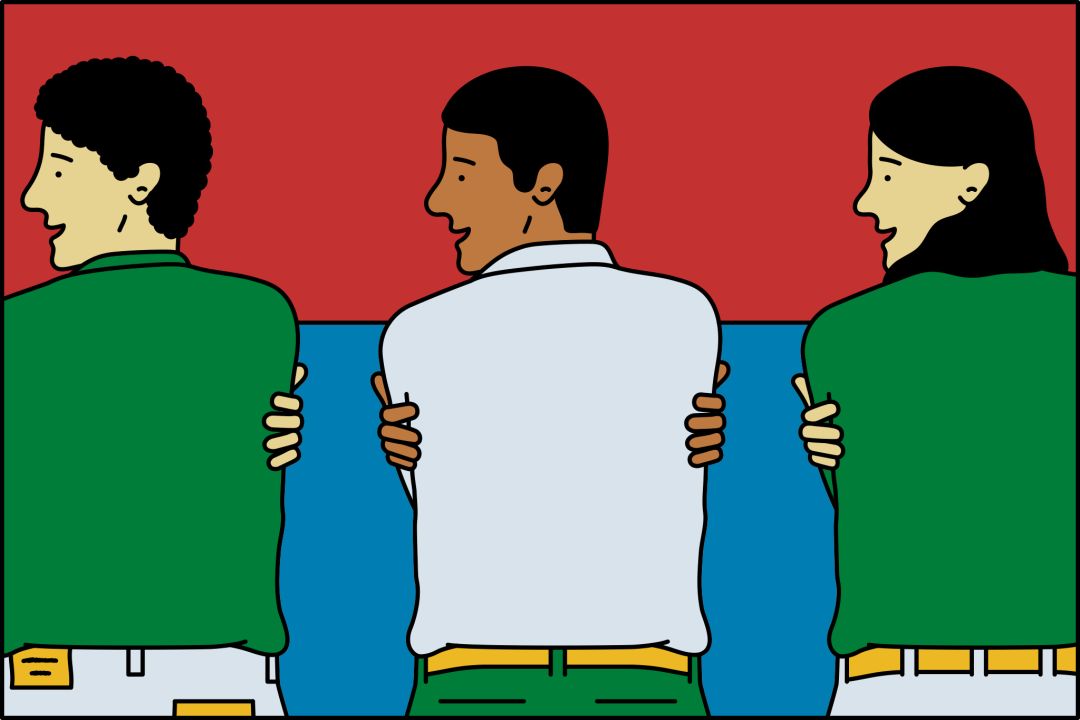首先,对于这个标题个人是有些排斥的,
人对于让自己过的好一些,几乎是本能。
但是有时候我们可能真的迷失了方向,或者搞错了轻重缓急。
特别是年轻的时候,我们下意识的忙碌着,希望去找到更好的自己。
但,也许,我们需要一些停顿的时间,发现下当下的自己。
纽时,Smart Living 专栏的精选文章
8 Ways to Be Kinder to Yourself in 2020

原作者:Tim Herrera
原刊于:New York Times
Take more time for yourself 多点一个人的时间
福田开始垃圾分类了,楼道撤离了垃圾桶。每天都得自己下楼去扔垃圾。
扔完垃圾,到时培养起来了绕着小区走几圈的习惯。
Choosing to spend time alone can benefit your social relationships, improve your creativity and confidence, and help you regulate your emotions so that you can better deal with adverse situations, according to experts.
“It’s not that solitude is always good, but it can be good” if you’re open to rejecting the idea — common in the west — that time by yourself is always a negative experience you’re being forced into, according to Thuy-vy Nguyen, an assistant professor in the department of psychology at Durham University, who studies solitude. She added that because solitude helps us regulate our emotions, it can have a calming effect that prepares us to better engage with others.
Take time to do nothing at all 放空自己
这个真的感觉比较难做到。每次去考试的时候,会告诉自己,下午的时间可以放松下,少看手机。但是考完试后的每一次都是在抓紧时间回忆考场的题目。
Running from place to place and laboring over long to-do lists have increasingly become ways to communicate status: I’m so busy because I’m just so important, the thinking goes.
Perhaps it’s time to stop all this busyness. Being busy — if we even are busy — is rarely the status indicator we’ve come to believe it is. Nonetheless, the impact is real, and instances of burnout, anxiety disorders and stress-related diseases are on the rise, not to mention millennial burnout.
One way out of this madness? Doing nothing.
Counterintuitively, idleness can be a great productivity tool because “if our energy is totally shot, our productivity is not going to be good because we’re not going to have fuel to burn with which to be productive,” said Chris Bailey, a productivity expert and author of the blog “A Life of Productivity.”
Cultivate more casual, low-stakes friendships 和熟悉的陌生人聊聊天
Think of the parents you see in the drop-off line at school. Your favorite bartender. The other dog owners at the park.
The sociologist Mark Granovetter calls these low-stakes relationships “weak ties.” Not only can these connections affect our job prospects, they also can have a positive impact on our well-being by helping us feel more connected to other social groups, according to Dr. Granovetter’s research. Other studies have shown weak ties can offer recommendations for services and empower us to be more empathetic. We’re likely to feel less lonely, too, research shows.
A 2014 study found that the more weak ties a person has (neighbors, a barista at the neighborhood coffee shop or fellow members in a spin class), the happier they feel. Maintaining this network of acquaintances also contributes to one’s sense of belonging to a community, researchers found.
Learn to enjoy things when they’re good 别太未雨绸缪,享受当下
原因其实很简单,就是人类在预测这件事情上,真的很差劲。是全人类都差,所以,你不会是例外的。
Worrying about when “the other shoe will drop” will only steal your current joy.
In a paper examining the costs and benefits of negative expectations in the journal Emotion, researchers found that students who predicted getting a poor grade on an exam felt bad for days before receiving their results. Worse, their stressing didn’t diminish the disappointment they felt once they got their scores.
One underlying reason people worry is that on some level they assume it helps. Yet we need to accept that we can’t perfectly prepare for potential challenges.
“There are an infinite number of bad things that could possibly happen (although most are unlikely), and there is just no way a person can anticipate them all,” according to Dr. Michel Dugas, a psychology professor at the University of Quebec.
Keep in mind that research has shown we are notoriously bad at predicting how we will feel in a given situation, and things often go better than we imagine they will in moments of fear. Dr. Dugas shared a takeaway a client observed: “I try to worry about everything bad that could possibly happen so that I won’t be taken off guard. What really bothers me is that although I do sometimes experience bad things, they are never the ones I thought about!”
Lean into your ‘guilty’ pleasures 狗血剧,口水歌,能让你放松的就都是好东西,别太在乎品位高下
The TV shows and movies we love, even though we just know they’re bad. The trashy books we simply can’t put down. The awful earworms we hate to love.
Yes, these are our guilty pleasures — what some people consider the junk food in our media diets. But if we enjoy them, why should we feel guilty? We should be free to enjoy whatever we like! And as it turns out, these so-called “guilty” pleasures can actually be good for us, so long as they’re enjoyed in moderation.
“When we rest, we think we’re supposed to use that time productively with problem solving,” said Dr. Kristin Neff, an associate professor in the department of Educational Psychology at the University of Texas at Austin. While “that may be good for survival,” Dr. Neff said, constantly running through hypothetical problems “is not very good for happiness.”
Taking a mental break and enjoying something that doesn’t require intense intellectual focus gets us out of problem-solving mode, and it can also improve our ability to productively deal with stressors and help us engage more positively with other people, according to experts.
Learn to accept a compliment — even if it’s from yourself 听到夸奖的时候,感情说谢谢。这都是你应得的
Pumping yourself up after a big win can feel a little awkward. You want to acknowledge good work, but you don’t want to feel arrogant. It’s that tricky balance of quietly reveling in a job well done without coming off as … well, a jerk.
Despite that awkwardness, getting credit for your work gives your brain good feelings and helps you accomplish more. Companies use praise to try to boost productivity and even revenue, and experts say that the psychological impact of keeping a positive view of your accomplishments can decrease stress and encourage better habits.
And even if you’re bad at taking a compliment, or you’re not getting external recognition, you can still enjoy major psychological benefits from celebrating your achievements on your own, according to experts.
Embrace the unexpected joy of repeat experiences 新鲜感没有我们想的那么神奇,走走来时的路,可能也别有滋味
好多我去过的地方,在电影里看到的时候,就感觉跟没去过一样。那些故地、故事、故人,都可以叙叙旧的。
Novelty is so overrated, and research has shown that you’re far more likely to enjoy something the second time around than you think.
“Doing something once may engender an inflated sense that one has now seen ‘it,’ leaving people naïve to the missed nuances remaining to enjoy,” according to Ed O’Brien, a professor of behavioral science at the University of Chicago Booth School of Business.
“When an experience has many layers of information to unveil, it’s probably a good bet to repeat it,” Mr. O’Brien said. “The rub is that it’s hard to tell which experiences will be like this, and our studies show that people are too quick to assume that they’ve ‘seen all the layers’ even in those cases where they haven’t.”
Turn your regrets into self-improvement 我们没法逃避后悔的感觉,只是我们可以把“悔”这件事情做的再理性和认真些,每当自己“悔”的时候,就干脆做一个完整的复盘吧。
Many of us try to push pain away. Others ruminate about perceived mistakes. But whether you ignore or fixate on what’s troubling you, research has shown that it’s impossible to run from emotions without consequences. And in a vicious twist, dodging upsetting feelings actually makes them even more present: Suppressing our emotions can diminish our capacity for joy and potentially manifest as physical pain.
So instead of trying to ignore your regrets, it’s a better idea to practice acknowledging the experience. Try this: Start by slowing down and noticing your thoughts and sensations. Relax your face and hands, and think about accepting how you feel now without worrying you’ll feel this way forever. Reaching this middle ground between avoiding and dwelling will prove less depressing.
Researchers also found that when people find a silver lining in their regret, they are able to think more clearly.
“Regret can be a problem, but one benefit of regret is that it signals improvement is possible,” said Neal Roese, a professor of marketing at the Kellogg School of Management at Northwestern University who focuses on the psychology of judgment and decision-making. “The trick is to avoid obsessing and pull out a lesson that can be applied in future situations.”
LAB + 外刊年报

本文源自微信公众号:LABcircle
